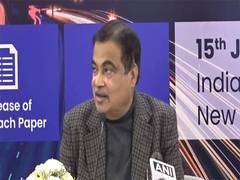Possible to generate more employment in gaming industry: Karnataka minister Priyank Kharge
New Delhi [India], October 16 (ANI): Karnataka minister Priyank Kharge highlighted the potential of increased employment in the gaming industry and long-term benefits to the economy by providing a regulatory framework to it.
Kharge attended the Indian Gaming Convention (IGC) in Taj Palace, New Delhi on Tuesday.
He highlighted that the market for the gaming industry in the country is estimated to be around Rs 16,500 crore and has the potential to grow much more.
“Our market is estimated to be close to around Rs 16,500 crores and in the next four to five years it has great potential to reach up to Rs 34,000 crores. Directly and indirectly, it can create another 2,50,000 jobs in this sector,” he told ANI.
He further said that if a regulatory framework could be provided to the industry, then it will be possible to generate more employment and will also benefit the economy in the long run.
“If we can provide a regulatory framework for the gaming industry, I am sure it will create a lot of jobs and will benefit the economy in the long run. I think the central government and state government need to take this seriously. (They should) push more for responsible gaming, push more for skilling in this sector, provide a conducive environment. As of now India has around 44 crore gamers, and we have more than 2000 startups in this sector. This will create jobs and benefit the economy in the long run,” he said.
Calling Karnataka the “innovation and skilling capital of the country,” he also highlighted the various centres for animations, visual effects etc., which have been set up in the state.
“Karnataka is the innovation and skilling capital of the nation. We have set up centres of excellence in animation, visual effects, graphics. We are also looking at a gaming accelerator. So by default since we are the technology capital we also become the gaming capital. We intend to anchor skilling and innovation in this sector, probably in the next 2-3 years you will see a lot of global IPs being produced from the state,” he added.





